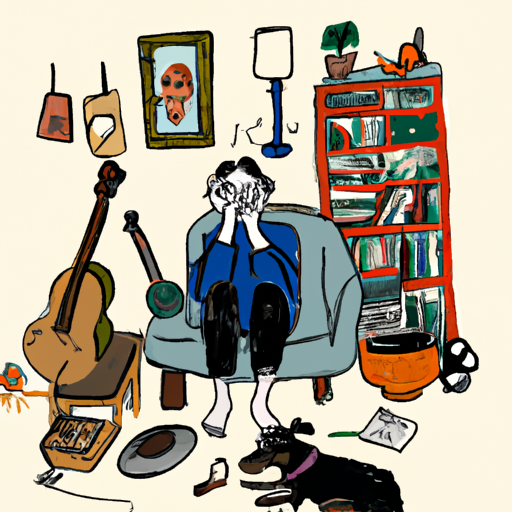Dogs are often given the endearing title of ‘man’s best friend’. They’re known for their loyalty, companionship, and ability to bring joy into our lives. However, not everyone shares this fondness for these furry friends. Some people might ask, “Why don’t I like dogs?” This question might seem outlandish to some, but it’s a valid sentiment that deserves exploration. So, let’s delve into the possible reasons behind this aversion.
- The Psychology Behind Disliking Dogs
- Cultural and Personal Beliefs
- Fear and Past Traumas
- Allergies and Health Concerns
- Preference for Solitude
- Maintenance and Responsibility
Key Takeaways:
– Not everyone who dislikes dogs is necessarily afraid of them.
– Cultural and personal beliefs play a significant role in our preferences.
– Past traumas can trigger a dislike for dogs.
– Health issues like allergies can contribute to an aversion to dogs.
– Some people simply prefer a more peaceful, solitary environment.
– The responsibility of taking care of a pet can be daunting for some.
The Psychology Behind Disliking Dogs
Psychologists often attribute our likes and dislikes to our personalities, life experiences, and even our genetics. In the case of disliking dogs, it might be a simple matter of personality traits. Studies show that pet owners are more extraverted and less neurotic than non-owners. So if you’re more introverted or sensitive, you might not enjoy the exuberance and unpredictability of a dog.
Cultural and Personal Beliefs
Different cultures have varying views about dogs. In some cultures, dogs are seen as dirty or impure, and contact with them is discouraged. These beliefs can significantly influence a person’s feelings towards dogs. For more on this topic, check out this insightful article.
Fear and Past Traumas
A traumatic encounter with a dog, especially during childhood, can be a powerful determinant of a person’s feelings towards dogs. Such experiences can lead to a fear known as cynophobia, which could manifest as an intense dislike for dogs.
Allergies and Health Concerns
Health issues, particularly allergies, can make being around dogs uncomfortable or even dangerous. According to the American College of Allergy, Asthma, and Immunology, approximately 10% of the U.S. population is allergic to dogs.
Preference for Solitude
Dogs are social animals that require interaction and attention. If you’re someone who cherishes solitude or prefers a quiet, predictable environment, a dog might disrupt your peace. This article from OneTopDog discusses some quieter dog breeds if you’re considering a low-key canine companion.
Maintenance and Responsibility
Dogs require a lot of care and attention. The responsibilities of feeding, grooming, exercising, and providing medical care for a dog can be overwhelming. It’s a commitment that requires time, effort, and financial resources. For an in-depth look at the responsibilities of owning a dog, visit this page.
Frequently Asked Questions:
1. Is it normal to not like dogs?
Yes, it’s perfectly normal. Everybody has different preferences and dislikes.
2. I’m afraid of dogs. How can I overcome this fear?
Professional help, such as therapy or counseling, can be beneficial. Gradual exposure to dogs under controlled circumstances can also help.
3. Can allergies cause a dislike for dogs?
Yes, allergies can cause discomfort around dogs, leading to a dislike.
4. Are there dogs suitable for people who prefer a quiet lifestyle?
Yes, some breeds are known to be less active and quieter. It’s best to research or consult with a professional before getting a dog.
5. Is disliking dogs the same as hating them?
No, disliking dogs simply means you prefer not to interact with them. Hatred, on the other hand, is a strong negative emotion that might involve harm or ill-will.
6. I don’t like dogs, but my partner does. How can we compromise?
Open communication is crucial. Discuss your concerns and fears. You might consider getting a low-maintenance pet or volunteering at an animal shelter together to gauge your comfort levels.
In conclusion, it’s okay if you don’t like dogs. Your feelings are valid and personal to you. Understanding the reasons behind your dislike can help you communicate better with others and navigate situations involving dogs more comfortably.



